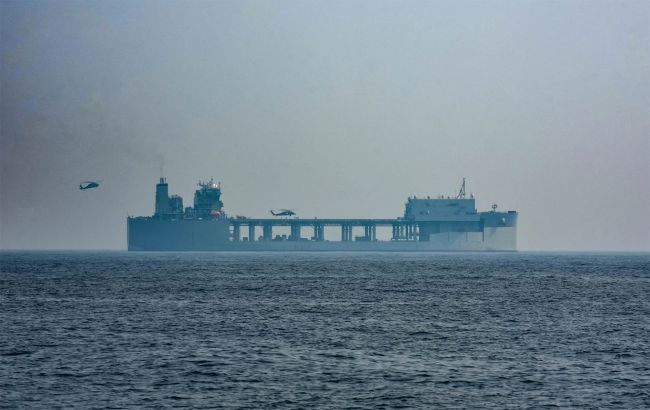Missing Navy SEALs presumed deceased after anti-Houthi nighttime mission
 Missing Navy SEALs presumed deceased after anti-Houthi nighttime mission (illustrative photo: CENTCOM)
Missing Navy SEALs presumed deceased after anti-Houthi nighttime mission (illustrative photo: CENTCOM)
After 10 days, the U.S. military has concluded a comprehensive search and rescue mission for two Navy SEALs who disappeared on January 11 in the Gulf of Aden. The military now presumes the SEALs to be deceased and the focus has shifted to recovery operations, ABC News reports.
"We mourn the loss of our two Naval Special Warfare warriors, and we will forever honor their sacrifice and example," CENTCOM's commander Gen. Michael Erik Kurilla says in a statement. "Our prayers are with the SEALs' families, friends, the U.S. Navy, and the entire Special Operations community during this time." Out of respect for the families, no further information will be released at this time.
The missing SEALs were involved in a mission targeting a small fishing or cargo vessel (dhow) presumably carrying Iranian-made weapons for Houthi militants in Yemen. During a nighttime boarding attempt, one SEAL fell into the waters. Following the protocol, a second SEAL tried to rescue him.
"Air and naval units from the US, Japan, and Spain spent 10 days searching an area of more than 21,000 sq miles (54,389 sq km) to try and find the commandos, with the help of oceanographers and meteorologists," BBC says.
The search primarily concentrated in the Gulf of Aden, off the coast of Somalia.
Results of the operation
The military seized Iranian-made ballistic and cruise missile parts from the intercepted dhow, as the other SEALs finished the mission. These components were similar to those used by Houthi militants in more than 30 attacks in the Red Sea and the Gulf of Aden. The SEALs were operating from the USS Lewis B Puller sea base and converted freighter.
The military says it is "one of the most difficult missions that a SEAL can undertake, requiring constant training."
The operation marked the first time since November 2019 that the U.S. Navy intercepted Iranian-made ballistic missile and cruise missile components believed to be destined for the Houthi rebels.
Houthi attacks
The attacks on shipping routes in the Gulf of Aden and the Red Sea, which constitute about 15% of the world's shipping traffic, have significant consequences for global trade. Shipping companies like Maersk were diverting vessels away from the Red Sea by taking a longer route around Africa or by pausing until the safety of vessels could be ensured.
On January 11, the United States and the United Kingdom launched powerful strikes against Houthi targets in Yemen. This was in response to sustained Houthi attacks on shipping lanes.
On January 18, the Indian Navy saved the crew of a U.S. ship in the Gulf of Aden after an attack by the Houthi group from Yemen.
The price of oil went up by 4% because oil tankers changed their routes away from the Red Sea.
Read more about the escalations in the Red Sea region in the article by RBC-Ukraine.

